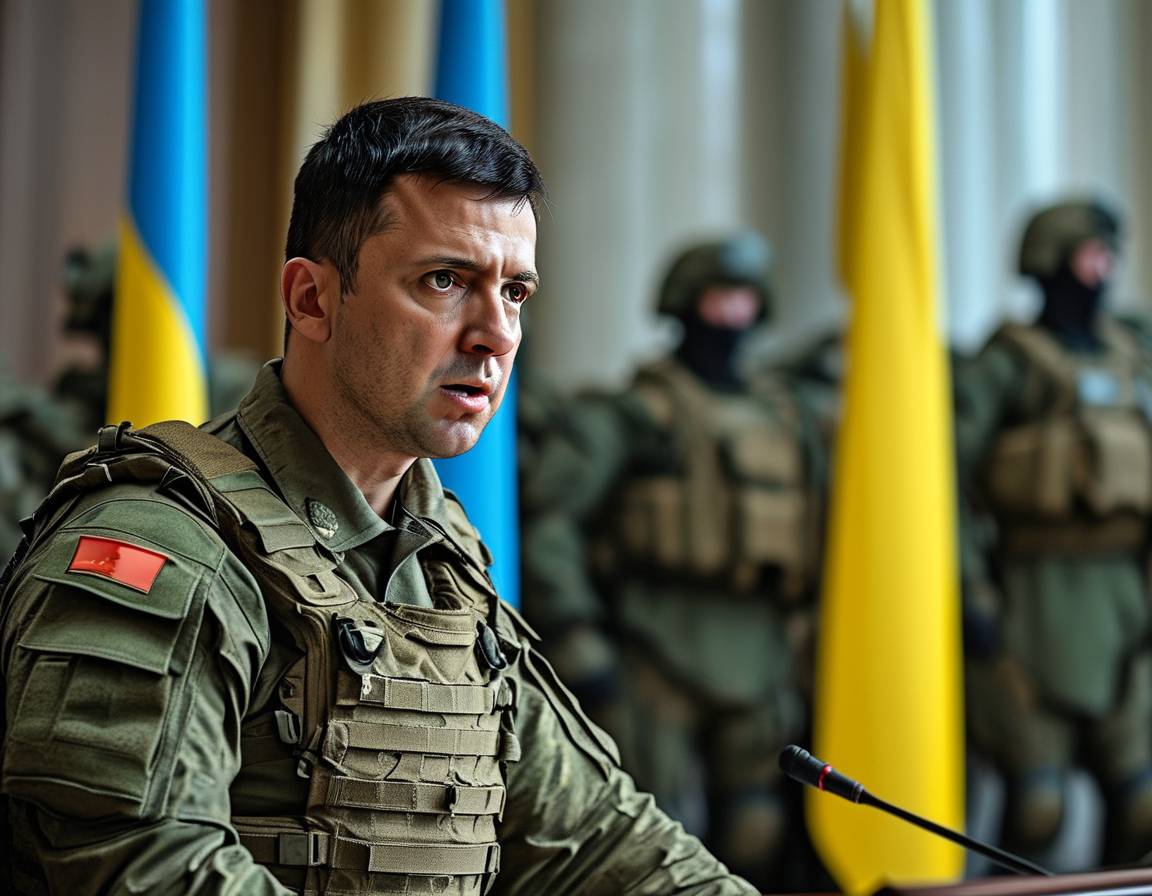
Ukrainian President Volodymyr Zelensky has made a startling claim. At least 155 Chinese citizens are fighting for Russia in the ongoing war. This assertion marks a significant escalation in tensions surrounding China’s role in this conflict.
During a press conference on Wednesday, Zelensky spoke with urgency. He stated that this isn’t just a minor issue but rather a growing concern. His government has gathered what they believe is compelling evidence. They have the names and passport data of the alleged fighters.
The backdrop of this situation raises countless questions. How involved is China really in this conflict? Understanding this dynamic could shift perceptions on both sides. The ramifications could affect international relations in unforeseen ways.
Earlier in the week, Ukraine captured two Chinese fighters, which adds gravity to Zelensky’s words. This was the first instance of official acknowledgment from Kyiv. China has often denied any significant military involvement with Russia. Their government maintains that most citizens are not participating in any armed conflict.
China’s Foreign Ministry weighed in on the claims. Spokesman Lin Jian stated they were investigating the situation further. Interestingly, he hinted at a distinction between official military actions and private engagements. This allows room for interpretation, doesn’t it?
Zelensky has pointed out that Russia is actively recruiting Chinese on social media. This method introduces a new layer of complexity to an already intricate conflict. Is it possible that these recruits are unaware of the broader implications?
His remarks indicate that Beijing might be privy to Moscow’s actions. Training in Russia precedes deployment to Ukraine, according to Zelensky. He emphasized that the movement of recruits is organized, complete with migration documents and payment.
As tensions rise, Zelensky urges caution. Russia’s involvement of foreign nationals is not a trivial matter. He believes it signals a dangerous intent on Putin’s part. It’s alarming how international dynamics are shifting right before our eyes.
Ukraine has consistently voiced skepticism regarding China’s neutrality. There has been suspicion that China aids Russia in more than just a passive manner. The U.S. has echoed these warnings, calling the reports disturbing. This adds weight to Ukraine’s accusations, making them harder to dismiss.
The historical context cannot be ignored either. In global politics, allegiances shift, and the nature of warfare evolves. Could this be a new chapter in international relations? The stakes have never been higher.
Furthermore, previous allegations of China providing dual-use technology linger. This raises eyebrows particularly because of their claims of promoting peaceful solutions. Why does it appear that their actions contradict their stated intentions?
As the situation develops, the global outlook remains uncertain. With Ukraine capturing two North Korean soldiers just days earlier, the narrative becomes even more complex. How does one distinguish friend from foe in the fog of war?
This is a pivotal time. What happens next could reverberate through international borders. Will this revelation about Chinese fighters alter the course of the conflict? Or will it reveal deeper alliances at play in an increasingly multipolar world?
As we digest these unfolding events, it’s crucial to consider all perspectives. Every statement from global leaders can sway public sentiment. We should remain alert, engaged, and ready for changes that may not come easily.
The ever-present question lingers—how will this evolve? Each nation is poised at a crossroads, and the choices made now will echo into the future. The world watches, and the outcome remains uncertain. This controversy offers a lens into the complex web of geopolitics at play in modern warfare.
Leave a Comment